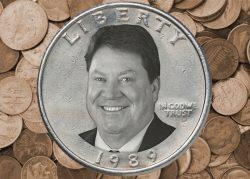Lendistry, a non-bank lender for small businesses, has expanded into home mortgages.
The Downtown Los Angeles-based lender has launched Lendistry Home Loans, a division to provide home loans to underserved communities in California, Georgia, Illinois, Maryland, Pennsylvania and Texas, the Los Angeles Business Journal reported.
Within the next year, it estimates it will have provided $300 million in funded loans.
Lendistry, founded in 2015, has administered more than $4 billion in pandemic relief funds to small businesses, as well as partnered with Amazon.com to support its small business sellers.
Its executives say that Lendistry Home Loans will help fulfill its mission of expanding access to capital and closing the wealth gap through loans and easy-to-access financial literacy content.
“This is about wealth building, and home ownership is shown historically to be one of the biggest avenues of wealth building,” Everett Sands, CEO of Lendistry, told the Business Journal. “So small business and home ownership, at least from where I stand in trying to help people build wealth — that’s what we’re really interested in.”
Lendistry Home Loans plans to offer both conforming loans of slightly higher than $1 million and nonconforming loans of around $3 million.
The firm will consider an individual’s financial standing and determine the program best suited to take them on a path to home ownership.
The company plans to offer conventional purchase and refinance loans, as well as several options for non-traditional borrowers including Federal Housing Administration and Department of Veterans Affairs Interest Rate Reduction Refinance loans.
While Lendistry Home Loans says that FICO, a credit scoring model, isn’t the end-all-be-all for whether someone would be approved for a loan, a minimum credit score of 620 would be required.
“There are risks associated with any loan,” Sands told the Business Journal. “From our experience in business lending and studying the patterns of the small business owners’ ability to pay Lendistry back the debt provided, we feel comfortable with the risk associated with undercapitalized communities.”
He said the firm is building up a network of counselors approved by the Community Development Financial Institutions Fund and the U.S. Department of Housing and Urban Development, who can help if borrowers run into financial trouble.
Moussa Diop, an associate professor of real estate at USC, said that since the 2008 financial crisis, nonbank fintech lenders have increasingly expanded into mortgage lending, making the process for borrowers easier and more convenient because of their online presence.
Diop said the Lendistry Home Loans model doesn’t differ much from standard lending practices, though he did pinpoint differences between small business lending and residential mortgage lending.
Lenders to small businesses are more likely to keep the loans on their books and continue to have a partnership, Diop said. But with mortgage loans, the lender needs to sell the mortgage at a profit, which then limits its ability to reduce the cost of mortgages for borrowers.
“Really the advantage here for those communities is just having somebody to talk to and somebody who can really help them access programs they didn’t know about. That could be something quite valuable,” Diop told the Business Journal.
Lendistry, among the largest non-bank lenders in the nation based on loan approvals, signed off on 783 loans this year for $127.3 million, from 110 loan approvals last year for $56.6 million, according to the Small Business Administration.
— Dana Bartholomew
Read more



